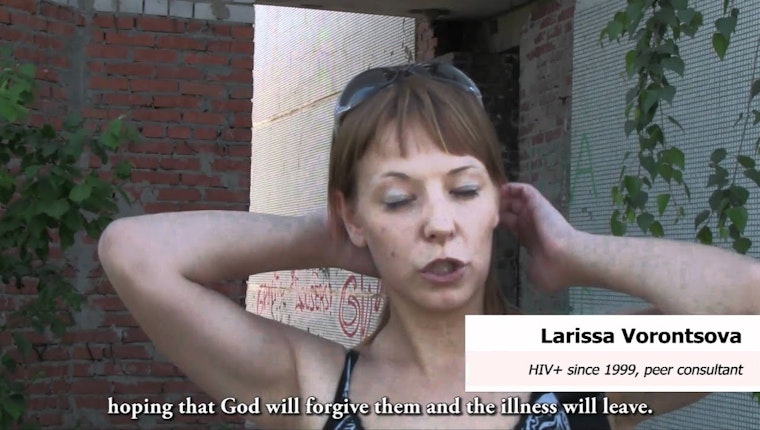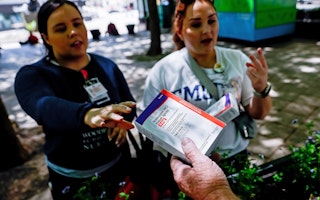Russia’s HIV Care Must Center on Drug Users
By Maria Golovanevskaya

On January 17, reporter Michael Schwirtz detailed in the New York Times the ongoing struggle to combat HIV in Russia, particularly amongst intravenous drug users. The country reported nearly 60,000 new cases of HIV in 2009, according to UNAIDS, and nearly two-thirds were linked to intravenous drug use while more still are the result of having sex with a drug user. Schwirtz documents not only how Russian officials have time and again failed to offer effective alternatives to people who wish to curb their drug use, but also how difficult it is for those infected with HIV to obtain consistent treatment options.
While the Open Society Public Health Program applauds efforts by the Times to shed light on this increasingly dire situation, the story doesn’t end at Russian reluctance to provide clean-needle exchange programs or methadone treatment services. As I explained in a recent letter to the editor of the Times in response to its article, access to antiretroviral treatment continues to be denied to injecting drug users. A recent study in 19 cities—organized by Open Society Foundations grantee the International Treatment Preparedness Coalition—found that in half of them, medical commissions used questions about drug use as criteria for denying treatment (download a PDF of the study from the ITPC website). Medical bureaucracy, as well as an outdated scheme that ties health care to residency permits, also serve as barriers to meaningful care.
Failures in treatment availability and lack of basic, effective drug treatment fuel another epidemic: multidrug-resistant tuberculosis. With no access to effective medications for addiction, drug-addicted patients with HIV and TB have to choose between treatment for tuberculosis and addiction—a choice akin to asking drug users to choose between the right leg and their left. The result is large numbers of patients who do not complete treatment, and some of the highest rates of multidrug-resistant TB in the world. The video above, produced by Russian grantee Timur Islamov Fund, provides an in-depth look at the country’s TB challenges.
As I wrote to the Times, Russia’s increasing allocation of resources to stop its HIV epidemic is commendable. Yet these efforts will be in vain unless drug users and other vulnerable groups are placed at the core of the country’s HIV treatment and prevention strategy.
Timur Islamov Fund is a former grantee of the Open Society Foundations.
Maria Golovanevskaya is a program officer for Open Society Eurasia Program.


